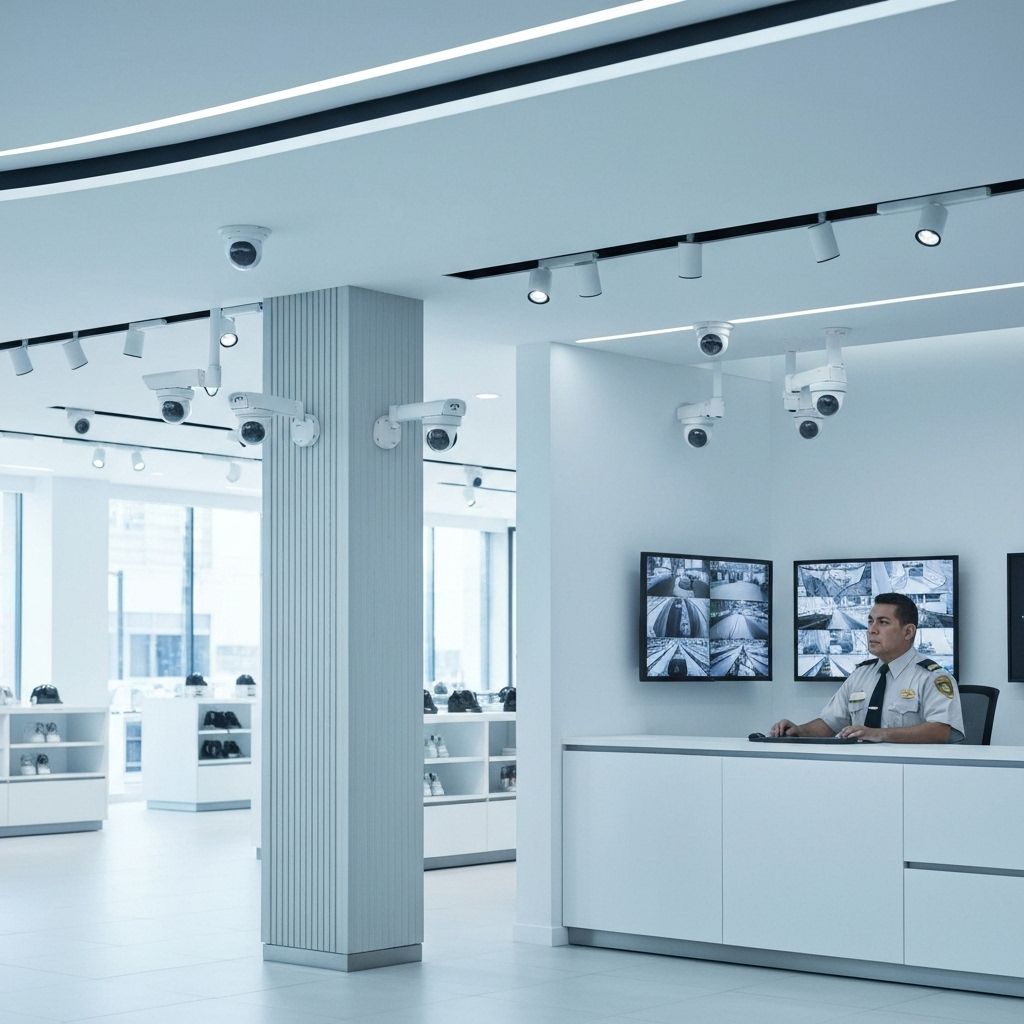10 Best Practices for Retail Security in 2024

Creating a comprehensive security strategy is essential for any retail business. Here are the top 10 best practices that leading retailers are implementing in 2024.
1. Implement Layered Security
Don't rely on a single security measure. Combine multiple approaches:
- AI-powered surveillance cameras
- Electronic article surveillance (EAS) tags
- Access control systems
- Security personnel
- Customer service presence
2. Strategic Camera Placement
Position cameras to cover:
- All entry and exit points
- High-value merchandise areas
- Blind spots and corners
- Cash registers and POS systems
- Stockrooms and receiving areas
3. Use AI-Powered Analytics
Modern AI systems can:
- Detect suspicious behavior patterns
- Track inventory movement
- Identify repeat offenders
- Generate actionable insights
- Provide real-time alerts
4. Train Your Staff
Your employees are your first line of defense:
- Teach them to recognize suspicious behavior
- Establish clear protocols for handling incidents
- Encourage customer engagement
- Regular security awareness training
- Empower them to report concerns
5. Maintain Visible Deterrents
Prevention is better than detection:
- Clearly visible security cameras
- Security signage
- Well-lit premises
- Organized, uncluttered displays
- Active staff presence on the floor
6. Implement Access Controls
Restrict access to sensitive areas:
- Employee-only zones
- Stockrooms and warehouses
- Cash handling areas
- Security system controls
- Inventory management systems
7. Regular Security Audits
Conduct periodic reviews:
- Test camera coverage and quality
- Review incident response procedures
- Assess vulnerability points
- Update security protocols
- Evaluate staff compliance
8. Integrate Systems
Connect your security infrastructure:
- Link cameras with POS systems
- Integrate with inventory management
- Connect to access control systems
- Enable mobile monitoring
- Centralize alert management
9. Leverage Data Analytics
Use security data to:
- Identify high-risk times and locations
- Track shrinkage patterns
- Measure security effectiveness
- Optimize staff scheduling
- Improve store layout
10. Stay Current with Technology
Security technology evolves rapidly:
- Regularly update software and firmware
- Evaluate new security solutions
- Attend industry conferences
- Network with other retailers
- Partner with security experts
Conclusion
Effective retail security requires a comprehensive, multi-layered approach. By implementing these best practices and leveraging modern AI-powered solutions, retailers can significantly reduce losses while creating a safer environment for customers and staff.
Remember, the goal isn't just to catch thieves – it's to prevent theft from occurring in the first place.